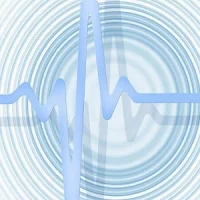Intermountain Healthcare has developed a new tool, the Intermountain Mortality Risk Score (IMRS), to help with evaluating a patient's risk of stroke, bleeding, and mortality with atrial fibrillation. IMRS is based on routine lab values typically collected from a patient – a complete blood count (CBC) and basic metabolic profile (BMP) – and can be used together with a patient's traditional risk score, known as CHA2DS2-VASc.
A new study of more than 80,000 patients from the Intermountain Medical Center Heart Institute in Salt Lake City showed that by combining the two risk scores, CHA2DS2-VASc and IMRS, physicians and atrial fibrillation (AFib) patients were better equipped to discern a patient's true risk. Results of the study were presented in Chicago at Heart Rhythm 2017, the Heart Rhythm Society's 38th annual scientific sessions.
The CHA2DS2-VASc score is an easy-to-use international guideline to determine a patient's need for blood thinners. Points are added based on age, sex, history of stroke, hypertension, heart failure, or diabetes. An AFib patient with a score of two or more is recommended to be placed on blood thinners.
This score, however, doesn't account for modifications in a patient's biological risk factors associated with atrial fibrillation, notes Kevin Graves, lead author of the study and a researcher with the Intermountain Medical Center Heart Institute.
"The CHA2DS2-VASc score might assign a patient a score of two, but a two isn't the same for everyone across the board," said Graves. "For example, our research showed that a female with a CHA2DS2-VASc score of one, who had a high IMRS score, was nearly two and a half times as likely to have a stroke than a female with a CHA2DS2-VASc of one and a low IMRS score; so a physician and patient can determine if using blood thinners is the best approach to treat this individual, even though guidelines using the CHA2DS2-VASc score would suggest no blood thinners are needed."
Atrial fibrillation is characterised by a rapid and irregular heartbeat that can have a significant negative impact on an individual's quality of life, causing heart palpitations, chronic fatigue, debilitating pain and can increase the risk of stroke five-fold.
For a patient who has lost weight or gained control of his/her high blood pressure, this may cause a reduction in risk but the CHA2DS2-VASc score alone doesn't take that into account. "Adding the Intermountain Mortality Risk Score, which accounts for biological factors which may reflect this change, provides more dynamic information for patients and physicians to consider when making the shared decision of whether to use blood thinners in treatment," Graves explains.
Approximately 80,000 patients were categorised based on their CHA2DS2-VASc score (0, 1, 2, or 3 or greater) at the time of their AFib diagnosis. Within each category, patients were further evaluated using the Intermountain Mortality Risk Score.
Source: Intermountain Medical Center
Image credit: Intermountain Medical Center Heart Institute










